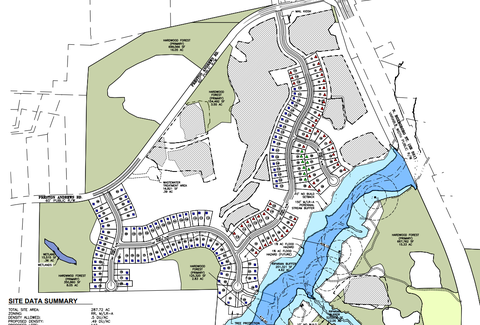In a closely watched ruling with implications for county planning, the North Carolina Court of Appeals this week overturned Durham County’s approval of the Mason Farms subdivision, finding the county had failed to adhere to its own zoning ordinance. The reversal reinforces the principle that even well-intentioned development must obey the letter—no exceptions.
A Subdivision Rejected: What’s at Issue
Three years after Durham approved a proposed 141-home “conservation subdivision” in the rural Bahama area, the Court of Appeals sided with residents who challenged the project. The contentious Mason Farms plan was proposed for 287 acres at the intersection of North Roxboro and Preston Andrews roads, and was approved in 2022 by county commissioners.
Six nearby homeowners—some living as close as 650 feet from the site—filed suit, arguing that the development failed to meet all twelve requirements listed under §6.2.4A of Durham County’s Unified Development Ordinance (UDO). These include mandates such as preserving wetlands, creating interconnected greenways, conserving scenic views, protecting farmland, and minimizing erosion.
The trial court had sided with the county in 2023, concluding that these “purposes” were aspirational and not strictly required. But on August 20, the appellate panel issued a 2–1 decision reversing that summary judgment, declaring that the 12 UDO purposes were clearly mandatory.
What the Judges Said
Judge Donna Stroud, writing the majority opinion, emphasized the significance of the word “shall” in the UDO—a term legally understood as compulsory rather than advisory. And because Mason Farms fulfilled only six of the required twelve purposes, the approval was deemed ultra vires—a legal term for acting beyond lawful authority.
Stroud also highlighted that the use of the conjunction “and” between the last two purposes further confirms the cumulative, obligatory nature of the directives.
In the Minority
Judge Allegra Collins, the dissenting voice, took issue with the majority’s interpretation. She viewed §6.2.4A as a statement of intent, not a checklist—arguing that the ordinance’s realistic goals are outlined in other, more technical subsections concerning density and open space.
“In practice, it’s improbable—maybe impossible—for any subdivision to meet all 12 requirements simultaneously,” she wrote, echoing a pragmatic approach to planning law.
What Comes Next for Durham
The court’s order instructs the trial court to enter judgment in favor of the residents and reimburse their legal fees. Durham County’s Attorney’s Office is reviewing the ruling. A county spokesperson notes that the UDO has since been amended—dropping the word “shall” and reframing the “purposes” as foundational goals, not binding mandates.
Why It Matters to Bull City Readers
Planning Precedent: The case reinforces that land-use law isn’t flexible just because developments have good aims. Integrity of Local Governance: It affirms that rules written by the County must be enforced as written—or revised openly through policy processes. Voice of Community: Resident challenges are valid checks within our system. Potential Policy Shifts: The county’s clarification of the UDO shows responsiveness—but future amendments may face public scrutiny.
At a Glance:
Mason Farms Verdict
Mason Farms: 141-lot conservation subdivision, Bahama, Durham County
Key UDO Section
§6.2.4A: twelve mandatory purposes for conservation subdivisions
Legal Journey
Approved 2022 → Lawsuit filed 2022 → Trial court sided with County 2023 → Appeals Court reversed 2025
Majority View
“Shall” and “and” make all 12 purposes mandatory; approval invalid
Dissenting View
Purposes are goals, not requirements; physically impossible to satisfy all
Next Steps
Case remanded for judgment in residents’ favor; developer and County may appeal or revise plan
At the Bull City Citizen, we are keenly following how this decision unfolds, how it affects conservation-minded development, and how Durham balances growth with legal integrity. If you live in Bahama, are interested in planning, or simply care about how Durham shapes its future—let us know. Our reporting continues with clarity and care, and your voice is always welcome.












